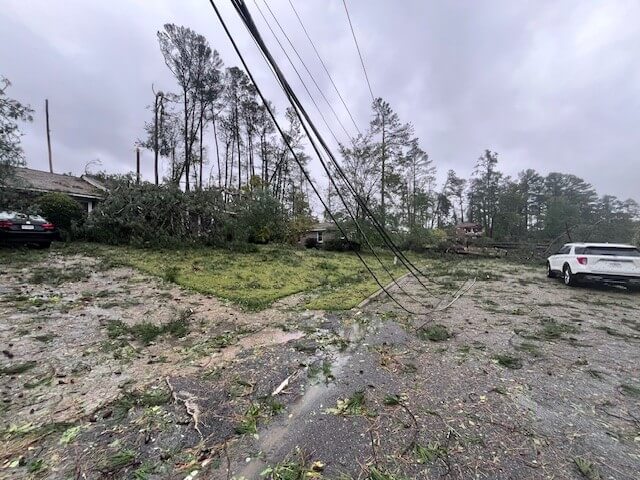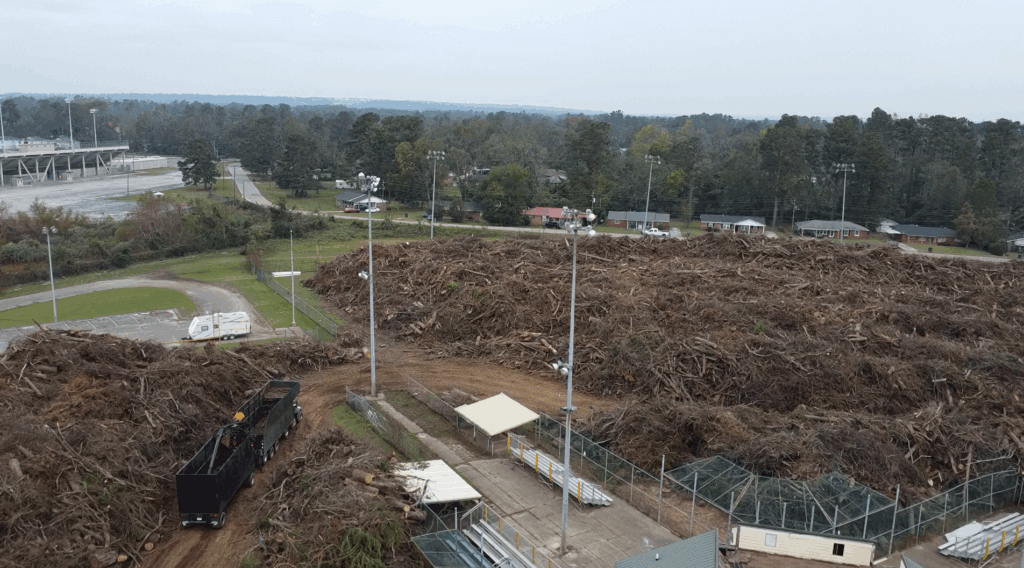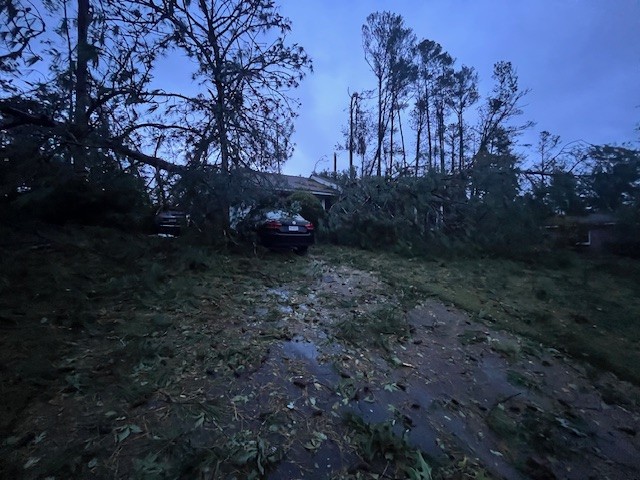Hurricane Helene brought utter devastation across the South the night of September 26, 2024, and into the next day. The unprecedented storm was quickly ranked as one of the worst natural disasters in history for Augusta, Georgia.
The storm unexpectedly tore through the city with torrential rain and 100-mph wind gusts, some of the most destructive ever seen, tragically resulting in deaths, injuries, property damage and outage of major utilities and services. The community had never witnessed something of this magnitude and for its residents, it’s hard to put into words the destruction that was done.
GMC Augusta Office Leader Rhonda Davis and her family are some of those residents. They have lovingly called Augusta home for decades. She discusses the impact it had on the city and how GMC’s disaster recovery team helped put the pieces back together.
The storm
The historic tropical storm was not even supposed to come near Augusta. It was forecast to go much farther west, meaning many in Augusta went to bed with little worry about the weather. Unfortunately, through the night, the storm made a strong and quick shift. Residents were awakened by weather alerts and shocked at what was coming straight toward them. Rhonda and her family were half asleep as they quickly gathered in the closet and huddled around an iPhone to watch the storm coverage.
The minutes felt like hours as the winds whipped and the storm stalled over Augusta that night. Rhonda said it seemed to last forever. “It’s unlike anything I’ve ever been through. We lost power, our phones weren’t charged and it was obvious that we were not prepared at all.”
By the time the deadly storm finally dissipated, it left 75% to 90% of the tree canopy destroyed, thousands without power and millions of cubic yards of debris strewn everywhere.
Waking up
Waking up on Friday, residents began to see pieces of their new reality, not yet realizing the full extent. The road ahead would be increasingly difficult with no power and limited gas; the city was now an eerie and a completely different place.
Rhonda and her family were not prepared, and they were not alone. Few were equipped for something close to this magnitude, and to make matters worse, help was delayed. Aid organizations had traveled west of Augusta, following the original line of the storm. Despite this, the community banded together to help each other and begin the cleanup process.
When Rhonda was able to get on the road, she began to see the number of trees littering the streets, hanging on power lines and crisscrossed across yards all over town. The record-breaking winds in this storm caused the most damage. Trees were destructive, having fallen on homes and businesses throughout the city.
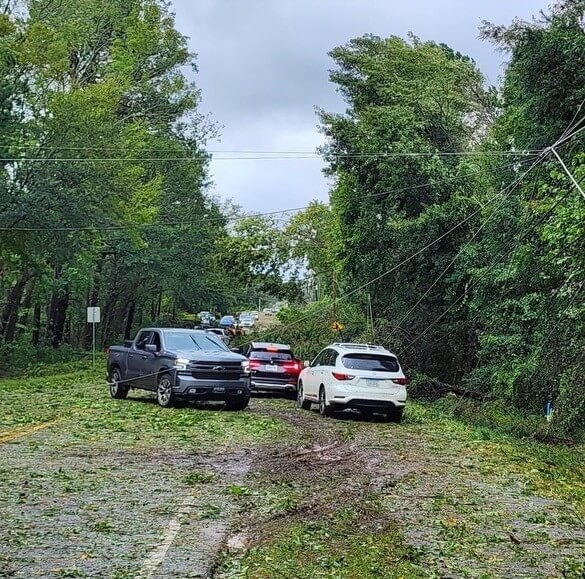
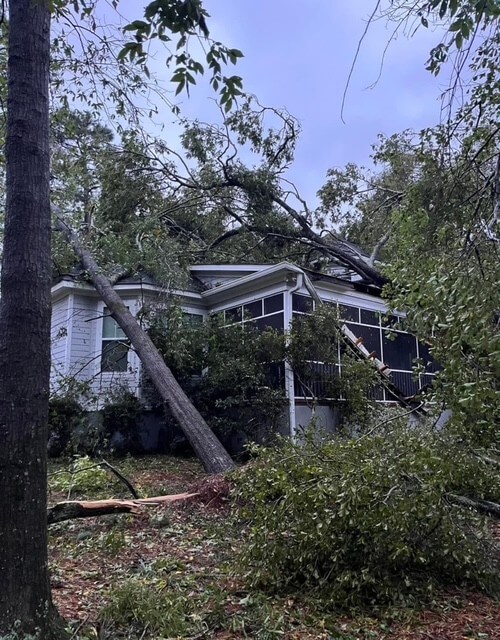
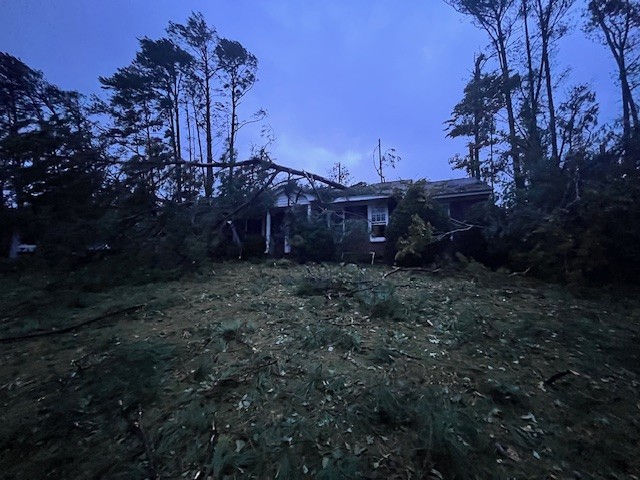
“There were trees down everywhere. There were no traffic lights and billboards were on the ground,” Rhonda recounted after driving around that day. “The city looked bleak, and the skyline had completely changed overnight. We began hearing from those in our GMC office who had been severely impacted by the storm and even a few needing temporary housing due to the damages. We were thankful to learn that even though the damage was extensive, our co-workers and their families were safe.”
For the next several weeks, residents unfortunately became accustomed to homes covered in blue tarps, no air conditioning, cold showers and a mandatory curfew. There was much to tackle that grim morning, but Rhonda said the community coming together and getting to work provided them hope.
Recovery
Right away, Rhonda called friend and GMC Disaster Recovery Leader Robert Ramsey. He dropped everything and was in Augusta within 24 hours to help figure out how to begin picking up the pieces. “It felt good to tell our city leaders that we have someone who can help,” said Rhonda. “Robert didn’t hesitate; the DR team was prepared, and they knew what to do.”
As part of the Augusta debris removal effort, the GMC team monitored the collection of 4.5 million yards of vegetative debris. 15,000 hazardous limbs were cut; 1,500 hazardous trees were chopped down; and 1 million yards of mulch were removed. During the largest portion of the project, 170 debris monitors were working to clear the debris. There was no shortage of cleanup to be done.
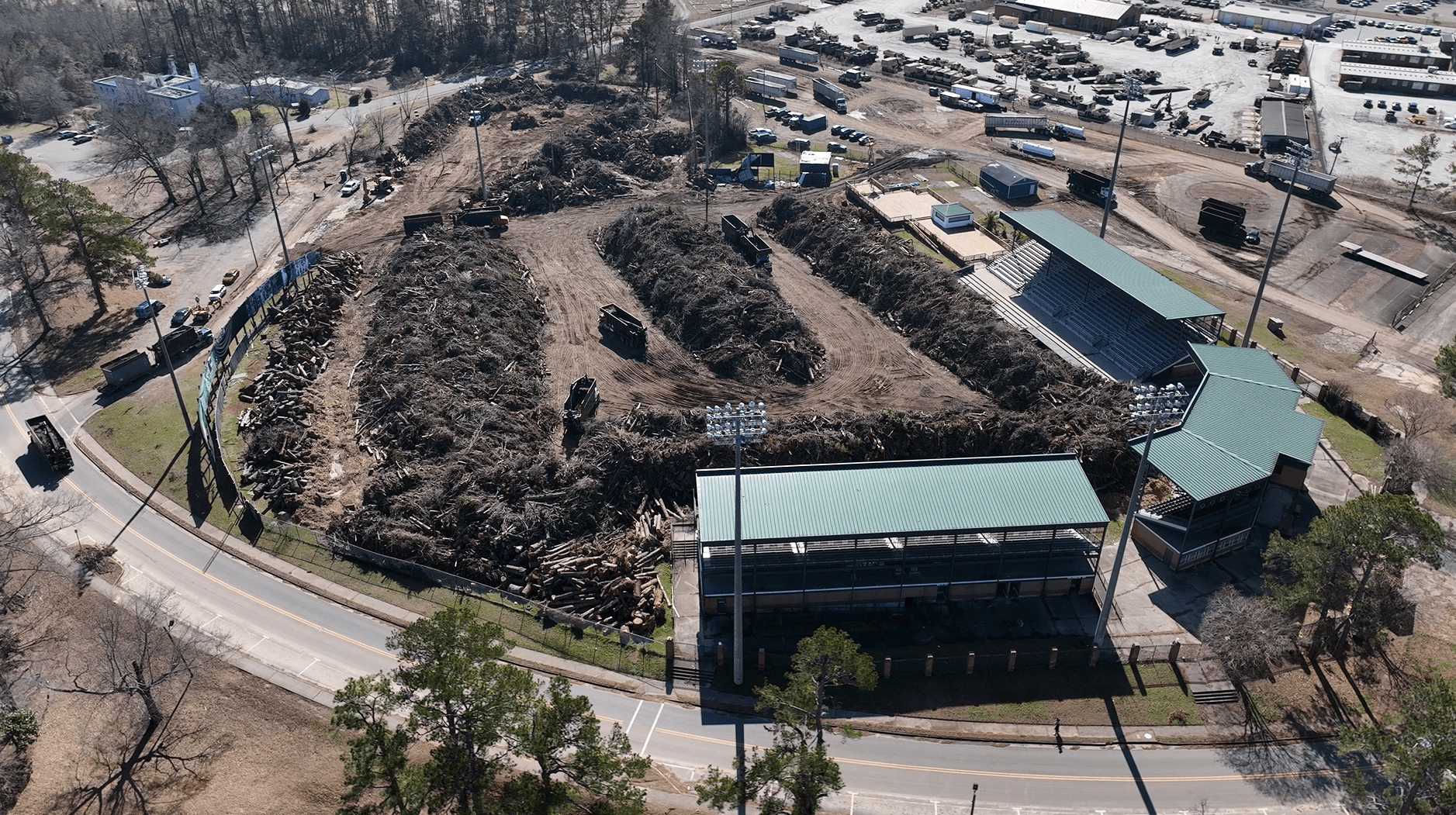
The team provided critical data management and project controls to ensure accuracy, efficiency and accountability throughout the project. These services included contract and compliance management, QA/QC, documentation and records management for compliance and audit readiness, as well as invoice reconciliation. In addition, the DR team created, ran and monitored detailed project reports to track progress, identify issues early and provide stakeholders with real-time visibility. Through all of these efforts, GMC’s disaster recovery group delivered accurate, transparent and accountable data management that supported the successful completion of debris removal operations in Augusta.
Residents were heartened by GMC and so many others who were helping in the cleanup process. Rhonda felt it was encouraging to see how her community rallied around one another in a very trying time. “Everyone was a little more forgiving and understanding,” she noted. “In these situations, you are quicker to extend a helping hand. You want to share with others and make sure everyone is taken care of.”
The community wrapped its arms around each other and so much progress was made. Power, water and other utilities were restored, and schools and businesses were back open within weeks.
Some GMC DR team members even stayed for weeks in the Augusta office, making sure recovery was on track. “They truly have servant hearts,” Rhonda said. “We are very fortunate that, as a company, we have the ability to serve communities in this way.”
Today
A year later, fewer residents have tarps covering their roofs and the piles of debris that once lined the streets are finally gone. Remarkably, Augusta is starting to feel more like itself again.
Today, there is still work being done and emotions that are still raw. “I’ll never see the tree line of Augusta the same. It changed in just one night, and it will take many years to get back to what it once was,” said Rhonda.
Though there is sadness, the one emotion that sticks out to her is gratitude. “Our local government teams left their homes and families to come into their offices to figure out where to begin the recovery process. They put their city first, making sure the community was taken care of above all,” she said. “I also have an even deeper respect for our disaster recovery team and what they do. I’ll always be their biggest cheerleader.”
Thanks to a collective effort and help from so many, Augusta is now a more resilient community that is becoming stronger than ever.
